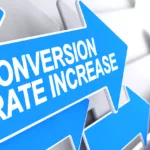Customer Relationship Management, or CRM for short, is a system for keeping absolutely on point where your customers are concerned; their details and data, every interaction they engage in with your business, and the management of their accounts. It is the bird’s eye view and the fly on the wall. The idea is to improve all customer relationships and in so doing, ensure the maximum value for your business from each customer.
CRM Systems – Explain Some More
Even the smallest businesses are handling customer data in huge amounts. You may not even realise you’re doing it. That telephone call counts. That email. That click through to certain pages on your website. That’s before looking at the data being harnessed by each and every sales lead and prospect which is actively acted upon. This data is valuable – it tells you about your customer.
However, despite each tiny facet of information being useful, and contributing to a greater picture, this data is usually unwieldy. For example, there may be a jotting in one person’s notebook. Then the email sits in another person’s inbox. No-one can ‘join the dots’. Every interaction is reduced to guesswork rather than using insightful fact. It makes the individual who holds the data all powerful, and the organisation missing a trick.
A CRM system is the solution. It collates customer data and transforms it in to valuable and actionable insight. It’s the software which brings it all together.
Why a CRM System is needed by all businesses
Competition in the global economy is fierce, and customer loyalty is hard to win and even harder to maintain. The barriers to entry are low and customer’s views are given immense platform and power thanks to social media. Let’s take a look at how a CRM system, such as the Microsoft Dynamics 365 software, can benefit your business:
Insight leading to planning
In many ways a CRM system is about the future. With accounting you get the historical view with revenue. CRM enables you to draw everything in to trends and active leads. This allows you to gain some insight into future revenue and profits.
This is possible through using the software to spot and monitor leads, and lead generators as well as opportunities. It’s also a way of getting insight into problems before they even become problems. It’s actionable insights such as lead conversion rates, campaign monitoring, customer service management, and even information on product defects.
Growth and profitability
Once upon a time sales were entirely reliant on the salesforce doing their job well. Now you operate in an omnichannel marketplace, where your customer will touch on your business in multiple ways before you secure a sale. This means you need consistency across every facet of the business. A CRM system such as Microsoft Dynamics 365 system enables you to ensure consistency across the board from your website to your social media, to a trade-show.
Where salespeople really matter now is with both cross-selling and up-selling. CRM is the tool which makes that possible.
Legal, Reliable, Best Practice
Engaging customers, and modern business practice, equals data. However, with data comes a plethora of responsibilities and obligations. You can’t simply leave data sitting around unsecured. To ensure you handle your customer’s data legally, but also effectively, you need technology in on the case. The technology is CRM.
This doesn’t just apply for collating data, but also for ensuring consistency in best practice, as we saw above. For example, a CRM enables you to create templates and procedures which are consistently the same and consistently meet your best practice requirements with elements such as workflow automation.
Maximising Output
It is incredibly difficult to stay on top of every single customer interaction without a holistic system. Mistakes will be made, and in so doing, you lose opportunity. If you want to maximise output you need to be accurate and you need to understand every customer.
Minimise Risk
Every business faces risk, day in, day out. What we are used to looking at is the bigger risks and managing these. However, in the global complex marketplace we also need to keep an eye on every tiny risk that the business is exposed to. A notable one is an employee being off work, or upping and leaving. This risks relationships with customers. With a CRM system this type of risk is mitigated because the customer doesn’t slip through the net. You also protect yourselves as you can see exactly what every employee is doing with every piece of data. Audit trails can give you peace of mind.
Know Thy Customer
Knowing your customer, truly understanding them, and how they interact with you, your products and your services, is the key to maximising their value. All sizes of business benefit from getting to know their customers better. It’s the competitive edge in many ways.
A CRM system enables you to really get to know each and every customer. But more importantly, given no one has the time to trawl through it all, it’s the way to create the impression that you understand them, and understand their preferences and needs. It’s scalable without having to personally remember all the facts.
How Do You Get a CRM System on Board?
Now here’s the problem. Not all CRM systems are created equally. In fact, not all software systems which bill themselves as CRM really are at all. You’re also likely to need something slightly different from your CRM compared to the business over the road.
Microsoft Dynamics 365 is a way of ensuring a CRM system which is bespoke to your business with all the familiar workings of Microsoft. Specialists such as Hitachi Solutionscan develop your CRM using Microsoft Dynamics to ensure you get all of the benefits outlined above. It’s the answer to competitive advantage, and your business needs it.








